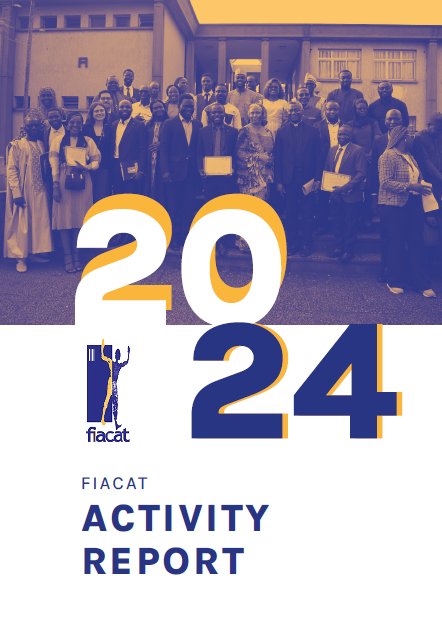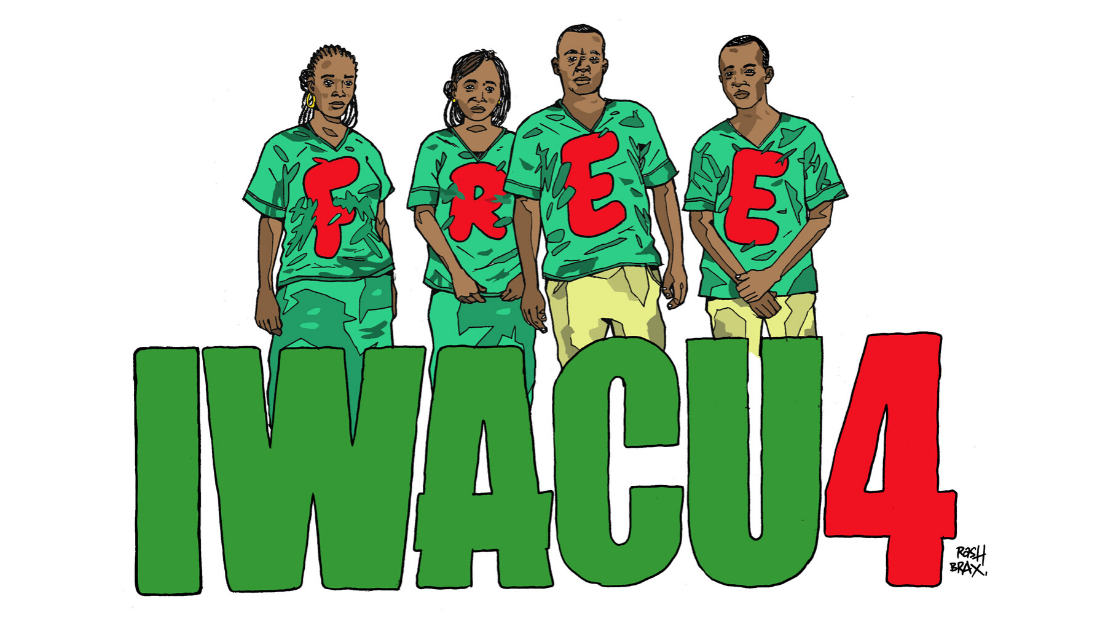On the first anniversary of their arrest, 65 organizations call for the immediate and unconditional release of the Iwacu journalists Agnès Ndirubusa, Christine Kamikazi, Egide Harerimana and Térence Mpozenzi who were convicted on charges against state security for simply doing their job. Their continued detention on baseless charges is a stark reminder that, despite a recent change in leadership, the Burundian government has little tolerance for independent journalism and free speech, the organizations said.
On 22 October 2019, the four journalists were arrested along with their driver Adolphe Masabarakiza as they went to report on clashes between the security forces and an armed group in Bubanza province. Although they had informed the provincial authorities of their plan to travel to the area, they were arrested on arrival and later accused of threatening internal state security. However, during the trial, the prosecution presented no evidence of the journalists having any contact with the armed group.
Although they were charged with complicity in threatening the internal security of the state, Ndirubusa, Kamikazi, Harerimana and Mpozenzi were ultimately convicted of attempting to commit the crime, a lesser criminal offense. Their lawyers say that they were not informed of the change to the charge prior to the verdict or allowed to defend themselves against it in court, violating fair trial standards. All four were sentenced to two and a half years in prison and fined one million Burundian francs (approximately 525 USD). Masabarakiza, who had been provisionally released in November 2019, was acquitted. Ndirubusa, Kamikazi, Harerimana and Mpozenzi appealed their conviction, but in its 4 June decision the Ntahangwa Court of Appeal upheld the verdict.
The message sent by the courts is an attempt to intimidate and threaten other journalists from doing their work and reporting on what is happening inside the country, the organizations said. The conviction and continued detention of the four journalists also runs counter to Burundi’s constitutional guarantees on freedom of expression, as well as regional and international obligations in accordance with Article 9 of the African Charter on Human and Peoples’ Rights and Article 19 of the International Covenant on Civil and Political Rights. It is particularly inconsistent with the African Commission’s 2019 Declaration of Principles on Freedom of Expression and Access to Information, which specifically provides that states shall take measures to prevent “arbitrary arrest and detention” of journalists.
Iwacu is one of the few remaining independent media houses operational in Burundi. Hundreds of journalists and human rights defenders have fled the country since the start of the political crisis in 2015 and those still working in the country often face threats and harassment. Releasing Ndirubusa, Kamikazi, Harerimana and Mpozenzi would be an important first step towards reopening civic space and recognizing the contribution of reliable media reporting in ensuring access to information for all Burundians.




